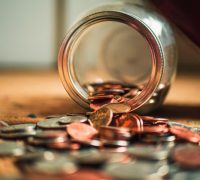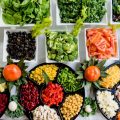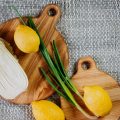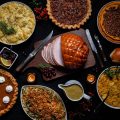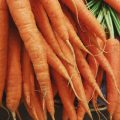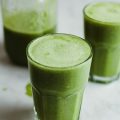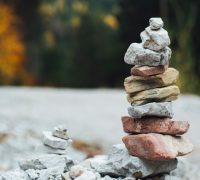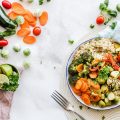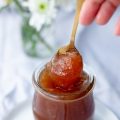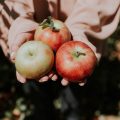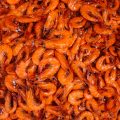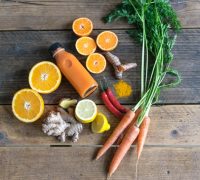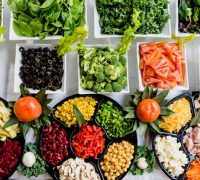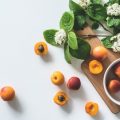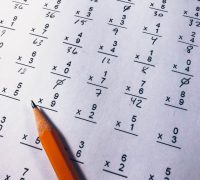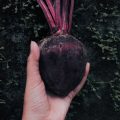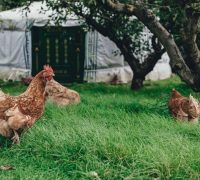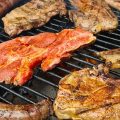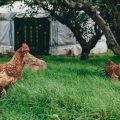Every now and then, I have a couple of weeks when I am very short in money. This is not unusual if you are a student, I believe, and during most of my studies, I have worked part time, up to 100+ hours a month to earn what I need for my living, additional to the financial support I get from my parents. This way, I have done quite a lot of different jobs – at first, it was mainly private tutoring (maths, haha), then working 10 hours shifts as a waitress in a café for a couple of weeks, and later mainly research assistant and tutoring jobs at university. Especially the latter have been very helpful because I would love to go for an academic career after finishing my studies, and this way I get experience with teaching and research and have somewhat become part of the staff in the department of psychology I want to make my PhD. Currently, I am working 55 hours a month as a research assistant in the departments of social and personality psychology, and since last summer I also give piano lessons.
Usually, the money I have is sufficient to get me over the month, and while I am not able to save money yet, I do not have to tighten my belt. However, it regularly occurs that I am so short in money that I almost cannot sleep from worrying. This always happens when my working contract in not extended in time – often because it is sent to the wrong department, and then it takes a week too long until it appears somewhere and can be followed up – and the administration is so incredibly slooooooooooooooooow that it takes two months until the contract is valid again. During that time, I do not get paid and have to borrow money from my parents or friends to pay my bills and food, which I pay back as soon as I get the back pay from the university.
This happened again last month, and additionally, I could give almost no piano lessons at all, due to Easter vacations, school trips, and spring infections that made my students cancel their lessons. Another student (who is a researcher at the psychological institute where I study and also a friend of mine) is currently awaiting her first baby in July and very busy with moving and preparing everything, so she is taking a break for a couple of months now.
Recently, I talked with my mom about my financial misery on the phone (again) and told her how bad I feel bad because I spend so much money on food. Seriously, most of the money I have I spend on food, although I almost never eat out. This is because I like to eat well: I eat a lot of vegetables, meat, fish, and seafood, I buy special things at the Asian market, and also frequent the organic supermarket often when I can afford it. I could live on a fraction of the money I currently spend on food if I would mainly eat spaghetti and white rice, but I know that would result in my health declining and my eating issues getting worse again, due to the overload in carbs and the lack of protein and fiber.
My mom was very kind and appreciated that I was caring better for me now, and she also pointed out another fact I had not thought about so far. This has to do with the conversion to the Euro in 2001. Before, we had the Deutsche Mark (DM) in Germany, that was changed 2:1 into Euro. We soon noticed, though, that the actual value proportion was rather 1:1, because everything got more expensive. As much as I appreciate the common currency, it brought a noticeable decline in life standard during the past couple of years: The prices rised gradually after the conversion, resulting in a price increase of 200 or 300 %, or even more, compared to ten years ago. And it gets worse and worse.
For example, when I was still at school, I would go to the Turkish food market around the corner in the lunch break and buy apples for 1 DM/kg. Now I pay 2 or 3 €/kg at the supermarket. Carrots were 1 DM/kg before and are now 1.30 €/kg, and bell peppers were about 5 DM/kg and are now 5 or 6 €/kg. And nobody would have spent 8 DM for a kg of tomatoes, but it is not unusual now that they cost 4 €/kg. If you buy organic, you can easily take the regular prices times 1.5. Organic meat or fish is totally unavailable for me in my current situation because it costs up to 30 €/kg.
When I had used up all the money I still had during April and was so broke again that I knew by the beginning of this month that, even I did not spend a single cent from now on, I would not be able to pay my living costs (food excluded! – just apartment, electricity, telefone, and so on), it was time to take measures for damage containment. Usually, I try to eat healthily on a rather small budget, but in the past couple of months, I have bought rather expensive foods more often – also because I take so much more pleasure in eating now. So, my meals would look like this.
~ luxury lunch with asparagus and lamb’s lettuce ~
This had to change. I made the plan to buy as cheap as possible while still sticking to my high-fiber and rather high-protein diet. Vegetables, fruit, animal protein, and fresh herbs are the major expense factor in my diet, so I decided to buy no vegetables that cost more than 1.50 €/kg, no fruit that cost more than 2 €/kg, and no meat or seafood that cost more than 7 €/kg. Fresh herbs I would not buy at all, but use up my dried stuff instead. Cream, almonds, and brown rice are not so much a problem because I spend much less on them overall.
Below, I have listed what was my in-and-out shopping guide during the last weeks.
VEGETABLES
In
carrots (1.30 €/kg)
canned tomatoes (1 €/kg)
brown onions (1.30 €/kg)
leek (1.50 €/kg)
white cabbage (1.50 €/kg)
frozen soup vegetable mix (1 €/kg)
frozen cauliflower (1.50 €/kg)
Out
bell peppers / capsicums (6 €/kg)
asparagus (4-10 €/kg, depending on whether it is on sale)
spinach (4-6 €/kg)
lamb’s lettuce (7 €/kg)
arugula (12 €/kg)
kabocha squash (3 €/kg)
sweet potatoes (3-5 €/kg)
red onions (4 €/kg)
spring onions (5 €/kg)
green beans (4 €/kg)
mushrooms (5-25 €/kg, depending on the kind)
Fresh tomatoes, zucchini, cucumber, and broccoli were possible on days when they were on sale.
FRUIT
In
apples (the kinds for 2 €/kg)
bananas (1-2 €/kg)
Out
nectarines (4 €/kg)
berries (4-15 €/kg, depending on the kind)
plums (4 €/kg)
uglis (4 €/kg)
Other fruits, like pineapples, mangoes, or melons, I do not like so much and thus do not eat, and they would have been too expensive anyway.
MEAT, FISH, AND SEAFOOD
In
chicken (7 €/kg)
turkey (6.50 €/kg)
minced beef (5 €/kg)
Out
beef steak (12-16 €/kg)
frozen white fish filets (8 €/kg)
frozen salmon (14 €/kg)
frozen shrimp / prawns (12 €/kg)
frozen octopus (8 €/kg)
frozen squid (8-10 €/kg)
Fresh fish and seafood is unavailable for me anyway, so I always buy frozen. Pork cutlet would have been available, but I am not used to it so much, so I did not buy it. Recently, I have also bought more eggs which are affordable.
By sticking to this plan, I managed to reduce my food costs by about 50 % and still eat a somewhat balanced, though limited, diet. I cheated three times and bought (1) some spinach (only for smoothies during these weeks), (2) a bunch of fresh coriander, because I am currently working on my appetite for coriander, and (3) two pots of basil and parsley that were on offer for 80 cent each and currently green on my kitchen window sill.
Also, I could use up the squash, green asparagus, fruit, and fresh herbs I still had, so I did not suffer so badly. Still, most of my meals were centered around poultry and either carrots or canned tomatoes.
~ chicken with canned tomatoes and my last red onions and fresh basil ~
~ turkey pot roast with carrots and my last two stalks of green asparagus ~
I still drank a green smoothie almost every day because they make me feel so good and are really something I want to allow myself to enjoy regularly.
~ the daily infusion ~
Taken together, these weeks were not so bad overall. It was not always easy, and especially the constant worrying was hard for my nerves, but I have learned a lot. I am much more aware of how much money I spend and on what. I asked myself if I really need a certain thing before I buy it. And I got more relaxed – for example, because I need to get my hair cut but could not afford it, and this would usually have made me freak out. But I beared it and became friends with hair clips.
Yesterday, my parents have sent me some money to get me over the month, so the worrying is better now, and I can loosen my shopping limitations a little. Still, I want to keep them as a basis and then buy something special on top of it only every now and then. I gradually get more sensible with money (I am not so good with that by disposition – I tend to spend money if I have it), so I only want to buy what I really need and rather put some money aside. Also, my piano needs tuning, and I need to buy a book for my Japanese language course, so these are things I will have to afford soon.
What relieves me is that the things that make me happy do not cost a lot of money. My piano is a source of constant happiness every single day, and I have also taken up my running-and-walking somethings again – which make me feel really good – so it is time to quit the gym now. And last night, I had my friend Nancy over for a visit, and we sat in the garden and shared a bottle of wine from the supermarket instead of going to a bar and spending 8 or 10 Euro on two glasses of wine each.
Are you often worried about money? What are the strategies you have evolved to cope with it and make it better? Which things do you allow yourself to enjoy?

